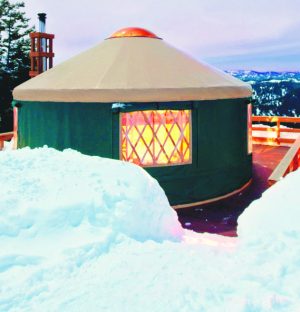June 24, 2019 – Milan-Cortina, Italy, will host the Olympic Winter Games 2026. The decision was taken today during the 134th Session of the International Olympic Committee (IOC) in Lausanne, Switzerland. The other candidate in the ballot was Stockholm-Åre, Sweden.
IOC President Thomas Bach said: “Congratulations to Milan-Cortina. We can look forward to outstanding and sustainable Olympic Winter Games in a traditional winter sports country. The passion and knowledge of Italian fans, together with experienced venue operators, will create the perfect atmosphere for the best athletes in the world. The Olympic Winter Games Milan-Cortina 2026 will feature iconic venues and beautiful settings, combining the attractions of a modern European metropolis with a classic Alpine environment.”He added: “The new Candidature Process has demonstrated the success of Olympic Agenda 2020. We have lowered the cost and complexity of developing Games projects, which now serve the long-term development goals of the host communities and have sustainability and legacy at their hearts. This has led to a significantly reduced organisation budget and the use of 93 per cent existing or temporary competition venues. I also want to thank Stockholm-Åre for presenting an excellent candidature and being part of the Candidature Process for the Olympic Winter Games 2026.”
Italy is a sport-loving nation, and winter sports are part of the tradition, culture and identity of Northern Italy. The region has world-class winter sports venues, ranging from the ice arenas of Milan to the well-established and iconic World Cup and World Championship destinations of Cortina, Bormio, Antholz and Val di Fiemme.The plan is fully in line with the Olympic Agenda 2020 reforms, which call for making maximum use of existing and temporary venues if there is no post-Games demand for new permanent facilities.
With regard to competition venues, Milan-Cortina 2026 prioritises sustainability and legacy, as 13 out of a total 14 facilities (93 per cent) will be existing or temporary.
The project has the unified backing of the Italian sports movement, the private sector and national, regional and city governments – providing a solid foundation for its delivery.
It features a clear vision to use the Games as a catalyst to boost economic development across Northern Italy, including supporting the regions to achieve their specific tourism goals, and to stimulate economic activities between the metropolitan and mountain areas.
The Candidature Process 2026 has been built on increased partnership, flexibility and sharing of knowledge. It featured a new one-year non-committal Dialogue Stage in which the IOC, together with the International Olympic Winter Sports Federations and the wider Olympic Movement, worked hand in hand with Interested Cities and National Olympic Committees (NOCs) to help them explore options and develop Games projects.
As part of the new process, the IOC provided increased technical services to each Interested City, while lowering the number of Candidate City deliverables and presentations.
The result is a significant cost reduction in the candidature budgets, projected to be more than 75 per cent lower than the average budgets for the 2018 and 2022 candidates.
In addition, the proposed Games operating budgets were on average 20 per cent lower than those of the Candidate Cities for the Olympic Winter Games 2018 and 2022.
The IOC Session decision means Milan-Cortina will also host the Paralympic Winter Games 2026.
###
The International Olympic Committee is a not-for-profit independent international organisation made up of volunteers, which is committed to building a better world through sport. It redistributes more than 90 per cent of its income to the wider sporting movement, which means that every day the equivalent of 3.4 million US dollars goes to help athletes and sports organisations at all levels around the world.






![National camp action [P]...](https://skitrax.com/wp-content/uploads/2019/08/Duluth-4-2019-08-08-at-10.46.51-AM-300x246.png)
![Matt Liebsch on the CXC Elite Team [P] CXC...](https://skitrax.com/wp-content/uploads/2019/08/Matt-Liebsch-CXC.2-525x700.4-300x267.jpg)
![Dan LaBlanc [P]...](https://skitrax.com/wp-content/uploads/2019/08/Dan-LaBlanc-img_1855.3.jpg)

![IOC President Thomas Bach [P] Dave Thompson](http://skitrax.com/wp-content/uploads/2019/06/Bach-2019-06-24-milan-cortina-inside-01-525x348.jpg)
![Milano Cortina celebrates [P] IOC/Greg Martin](http://skitrax.com/wp-content/uploads/2019/06/Hug-2019-06-24-milan-cortina-inside-02-525x364.jpg)